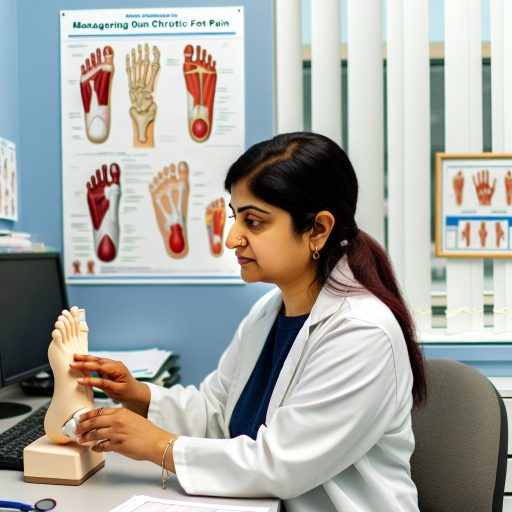Understanding the Role of an Audiologist in Hearing Health
Expert Evaluation of Hearing
An audiologist performs comprehensive evaluations of hearing abilities.
They utilize advanced testing methods to assess hearing loss.
By identifying specific issues, they recommend effective solutions.
Personalized Hearing Care
Audiologists provide individualized treatment plans tailored to each patient.
They focus on improving communication effectiveness in daily life.
This care may include hearing aids, counseling, or rehabilitation services.
Prevention of Hearing Loss
Regular visits to an audiologist can help prevent further hearing loss.
They educate patients about noise exposure and protective measures.
Taking proactive steps can significantly preserve hearing health.
Management of Tinnitus
Audiologists are equipped to help manage tinnitus symptoms effectively.
They provide strategies and therapies to cope with ringing in the ears.
Many patients find significant relief through tailored treatment plans.
Continuous Monitoring and Adjustment
Regular check-ups ensure that hearing aids and treatments remain effective.
Audiologists adjust devices based on changing hearing needs.
This continuous care enhances overall hearing quality and satisfaction.
Support and Counseling
Audiologists offer counseling to help patients adapt to hearing loss.
They provide resources and tools for improving communication skills.
Support from professionals can make a significant difference in quality of life.
The Importance of Regular Hearing Assessments and Screenings
Understanding Hearing Health
Seeing an audiologist regularly ensures you understand your hearing health.
Hearing assessments provide a comprehensive view of your auditory capabilities.
They help identify any issues before they progress further.
Early Detection of Hearing Loss
Regular screenings enable early detection of hearing loss.
Detecting issues early allows for timely interventions.
This can significantly improve your quality of life.
Customized Hearing Solutions
An audiologist offers personalized treatment plans tailored to your needs.
Unlock Your Career Potential
Visualize a clear path to success with our tailored Career Consulting service. Personalized insights in just 1-3 days.
Get StartedThey can recommend hearing aids or therapy based on your specific condition.
Regular visits ensure these solutions remain effective as your hearing changes.
Management of Other Conditions
Hearing problems may relate to other health issues, such as diabetes or hypertension.
Regular assessments help manage these interconnected conditions effectively.
It allows for a holistic approach to your overall health.
Enhanced Communication Skills
Improving your hearing enhances your communication abilities.
Regular follow-ups can provide strategies to maintain effective communication.
This can benefit both personal and professional relationships.
Access to Latest Technology
Regular visits keep you informed about advancements in hearing technology.
Technological improvements can enhance your auditory experience.
Your audiologist can recommend the best devices available to you.
Building a Long-Term Relationship
Consistent visits foster a strong relationship with your audiologist.
This relationship ensures that you receive tailored care over time.
Establishing trust enhances your comfort during assessments.
Advocacy and Support
Your audiologist acts as an advocate for hearing health issues.
They provide guidance on navigating the healthcare system effectively.
Support can be crucial for those facing challenges with hearing loss.
How Early Detection of Hearing Issues Can Prevent Further Damage
The Importance of Regular Auditory Checkups
Regular visits to an audiologist can significantly benefit your hearing health.
These professionals assess your hearing capabilities and detect any potential issues early.
Moreover, early detection helps in preventing the deterioration of auditory function.
Understanding Hearing Loss Progression
Hearing loss may develop gradually and often goes unnoticed at first.
When identified in its early stages, hearing loss can be managed effectively.
Without timely intervention, hearing issues can worsen and lead to permanent damage.
Preventive Measures Through Audiological Assessments
An audiologist recommends specific tests to evaluate your hearing levels.
These tests help identify problems like tinnitus or age-related hearing loss.
Moreover, regular assessments assist in monitoring changes over time.
Adapting to Changes in Hearing Ability
When audiologists find changes in your hearing, they provide appropriate solutions.
Options include hearing aids or other assistive devices to enhance sound clarity.
This proactive approach minimizes the impact of hearing loss on daily life.
Enhancing Quality of Life Through Early Intervention
Addressing hearing concerns early can drastically improve communication.
Better communication strengthens personal relationships and social interactions.
Additionally, it can decrease the risk of isolation and depression related to hearing loss.
Discover More: Kinesiology’s Role in Workplace Ergonomics and Safety
The Link Between Hearing Health and Overall Wellness
Understanding Hearing Health
Hearing health plays a crucial role in overall well-being.
Many people underestimate its importance.
Good hearing enhances communication and social interactions.
It allows individuals to engage more meaningfully with the world.
Connection to Mental Health
Hearing loss often leads to feelings of isolation.
This can contribute to depression and anxiety over time.
Frequent visits to an audiologist can alleviate these concerns.
Regular check-ups can also promote positive mental health outcomes.
Impact on Physical Health
Poor hearing can affect your physical safety.
It increases the risk of accidents and injuries.
By addressing hearing issues early, you enhance your life quality.
Additionally, better hearing helps maintain physical fitness.
Enhancing Relationships
Good hearing fosters stronger relationships with loved ones.
It allows you to engage fully in conversations.
This engagement leads to improved emotional connections.
Regularly seeing an audiologist can prevent misunderstandings.
Benefits of Early Intervention
Early detection of hearing issues can save you from future complications.
It allows for timely treatment and management options.
Additionally, it reduces the impact of hearing loss on daily life.
Those who treat hearing problems early often report increased satisfaction.
Gain More Insights: How To Build A Career In Speech-Language Pathology
The Benefits of Personalized Hearing Solutions from an Audiologist
Tailored Hearing Assessments
An audiologist conducts comprehensive assessments of your hearing abilities.
These assessments lead to tailored solutions specific to your needs.
Such personalized evaluations ensure accurate diagnosis and effective treatment.
Access to Advanced Technology
Audiologists provide access to the latest hearing technology.
These technologies offer better sound quality and enhanced features.
Moreover, they help you adapt to various listening environments.
Comprehensive Follow-Up Care
Regular visits allow for ongoing monitoring of your hearing health.
Audiologists can adjust your hearing devices as needed for optimal performance.
This continuous care enhances your overall listening experience.
Expert Guidance and Support
Audiologists act as trusted guides in your hearing health journey.
They provide education on hearing loss prevention and management.
Furthermore, they support you in understanding your treatment options.
Improved Communication Skills
Personalized solutions enhance your ability to communicate effectively.
Audiologists offer strategies to improve conversation skills.
As a result, this fosters stronger relationships with loved ones.
Better Quality of Life
With improved hearing comes a significant boost in your quality of life.
Personalized solutions reduce feelings of isolation associated with hearing loss.
Consequently, this leads to more enjoyable social interactions.
Learn More: Speech Pathology Services Covered In Canadian Healthcare

Ongoing Support and Management for Hearing Aid Users
Regular Check-ups
Regular appointments with an audiologist enhance the effectiveness of hearing aids.
These visits allow for thorough evaluations of your hearing performance.
Frequent check-ups help identify any changes in your hearing ability.
Additionally, they allow timely adjustments to your hearing aids.
Personalized Counseling
Consultations with an audiologist provide personalized advice and support.
This guidance is crucial for adapting to life with hearing aids.
The audiologist can answer specific questions about usage and care.
Moreover, they can suggest strategies for effective communication in various environments.
Maintaining Hearing Aids
Regular visits ensure your hearing aids are functioning optimally.
Audiologists perform necessary maintenance and repairs during appointments.
They also offer tips on cleaning and care to prolong the lifespan of your devices.
Proper maintenance keeps your hearing aids working efficiently, enhancing sound quality.
Staying Informed on Technology
Hearing aid technology is continually evolving.
Your audiologist keeps you updated on new features and advancements.
They provide insights into the latest technology that could benefit you.
Being informed ensures you are using the best options available.
Support for Adjustment Periods
Adjusting to hearing aids can take time and patience.
Audiologists offer ongoing support to help ease this transition.
They can provide strategies to overcome initial discomfort and challenges.
This reassurance is vital for boosting your confidence in wearing hearing aids.
Delve into the Subject: How Chiropractic Adjustments Improve Spinal Health
The Role of Audiologists in Preventing Hearing Loss in Noise-Exposed Professions
Understanding Noise-Induced Hearing Loss
Noise-induced hearing loss is a significant concern in various professions.
It can gradually develop after prolonged exposure to loud noises.
Workers often do not realize the damage until it’s too late.
Audiologists play a crucial role in early detection and prevention.
Regular Hearing Evaluations
Regular evaluations help identify hearing changes over time.
Audiologists recommend testing based on individual exposure levels.
These assessments can catch issues before they become severe.
Early intervention often leads to better outcomes for patients.
Education on Noise Safety
Audiologists provide essential education about noise safety in the workplace.
They inform workers about safe noise levels and exposure duration.
Additionally, they advocate for the use of hearing protection.
Proper education helps reduce the incidence of hearing loss.
Personalized Hearing Protection Solutions
Audiologists design custom hearing protection to suit specific needs.
This ensures maximum comfort and effectiveness for users.
They also advise on the correct usage and maintenance of devices.
Wearing appropriate protection significantly lowers the risk of hearing loss.
Monitoring and Follow-Up
Ongoing monitoring is essential for those in noisy environments.
Audiologists schedule regular follow-ups to track hearing health.
This proactive approach allows for timely interventions.
It fosters a culture of safety in high-risk professions.
Advocacy for Workplace Regulations
Audiologists advocate for stricter regulations on noise levels in workplaces.
They collaborate with employers to ensure compliance with safety standards.
Improved regulations lead to safer working environments.
Ultimately, this advocacy can decrease the prevalence of noise-induced hearing loss.
Navigating Tinnitus: How Audiologists Help Manage Symptoms
Understanding Tinnitus
Tinnitus is a condition that affects millions of individuals globally.
It manifests as a ringing, buzzing, or hissing sound in the ears.
This sound can be persistent or intermittent, varying in intensity.
Understanding tinnitus is the first step in effective management.
How Audiologists Diagnose Tinnitus
Audiologists play a critical role in diagnosing tinnitus accurately.
They conduct comprehensive hearing tests to assess the condition.
These tests help determine the extent and nature of the tinnitus.
Using specialized equipment, audiologists evaluate auditory function.
This process allows them to identify potential underlying causes.
Creating a Personalized Management Plan
Once diagnosed, audiologists develop tailored management plans.
These plans address individual symptoms and lifestyle factors.
They may recommend sound therapy to provide relief from symptoms.
This involves using background noise or white noise to mask tinnitus.
Audiologists also suggest cognitive behavioral therapy as an option.
Providing Education and Support
Audiologists offer valuable educational resources for tinnitus sufferers.
They explain the condition and its potential triggers to patients.
Understanding these triggers helps individuals manage symptoms better.
Audiologists also provide emotional support to alleviate anxiety.
Support groups facilitated by audiologists encourage sharing experiences.
Monitoring Progress and Adjusting Treatment
Regular follow-ups with an audiologist are essential for progress tracking.
During these visits, treatment plans can be adjusted as needed.
Audiologists assess the effectiveness of current strategies.
This ongoing monitoring ensures that patients receive optimal care.
Adjustments may include changing sound therapy techniques or resources.




